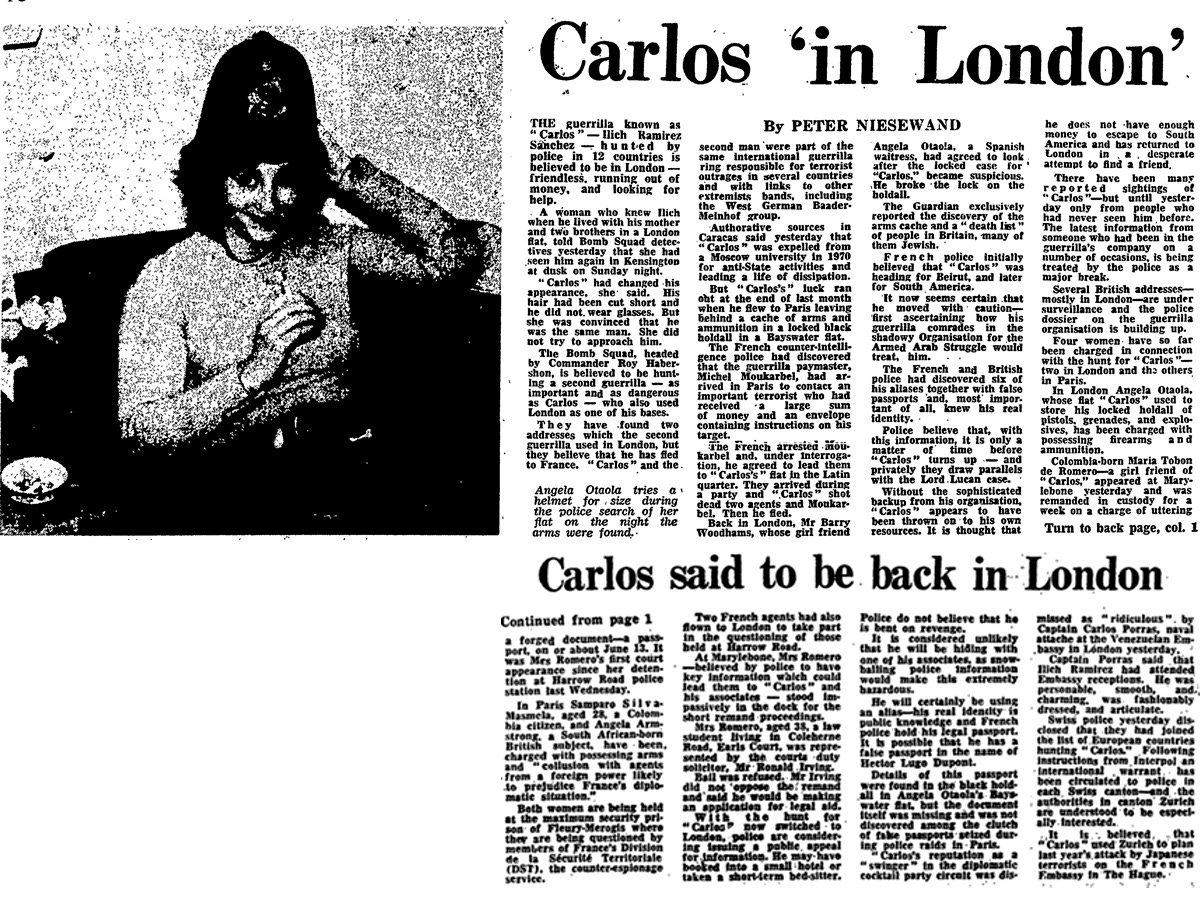On This Day 1975: The Paris Arrest That Ended Carlos the Jackal’s Summer of Illusion
From a tense meeting at a June house party to his capture on 14 August 1975, the summer Paris closed in on one of the world’s most wanted men.
On This Day: The Night Paris Finally Caught Carlos the Jackal
It began on a sweltering summer night in Paris, 27 June 1975. In a modest apartment filled with cigarette smoke, wine, and chatter, young radicals and students drifted between conversations. Among them was a man calling himself Carlos, a charming 25-year-old Venezuelan with an easy smile and the air of someone who belonged everywhere and nowhere at once.
Carlos was not his real name. He was Ilich Ramirez Sanchez, already deep into the dangerous world of revolutionary politics. By then he had been working with the Popular Front for the Liberation of Palestine, a group dedicated to ending Israeli occupation and creating an independent socialist Palestinian state. His methods were as uncompromising as his convictions. Earlier that year he had been involved in an attempt to blow up two Israeli airliners at a Paris airport. The plot failed, and while the French authorities had not linked him to it yet, the threat of discovery hung over him like a shadow.
Trouble at the Door
As Carlos was deep in conversation with a young woman, another guest interrupted with an urgent message. The police had arrived, asking to speak with him.
Outwardly calm, Carlos walked towards the doorway. Two French officers waited, ready with questions about his background and his recent movements. He replied with deliberate vagueness, offering little for them to work with. Without the evidence to hold him, the police let him go.
It was not an arrest, but it was a warning. The meeting that night marked the first crack in the wall that shielded his double life. Carlos left the apartment free, but his anonymity was beginning to crumble.
The Man Behind the Name
Born in Venezuela in 1949, the son of a Marxist lawyer, Ilich had grown up in privilege and political fervour. Educated in London and trained in Moscow, he found his calling in the Middle East. There he became a committed operative, moving weapons, planning missions, and carrying out attacks in the name of the Palestinian cause.
By the summer of 1975, Carlos was moving through Europe under a web of false identities, staying one step ahead of the authorities. But Paris was becoming more dangerous ground.
From June to August
In the weeks following that tense encounter at the Paris party, French police and intelligence services kept Carlos in their sights. Every lead, every whisper of his activities was followed.
The trail reached its climax on 14 August 1975. Acting on intelligence, French authorities moved in. This time there was no polite conversation at a doorway. The man who had walked away so easily in June was taken into custody, the charm and composure that had shielded him for so long no longer enough to protect him.
The arrest marked a turning point in Carlos’s story. His name, once a shadowy rumour among intelligence circles, began to surface in the press. He would later become infamous for his audacious December 1975 raid on the OPEC meeting in Vienna, where hostages included some of the most powerful oil ministers in the world. But the chain of events that made him a global figure began in Paris, between that June party and the August arrest.
The Significance of 14 August
Looking back, 14 August 1975 was not just a date in the police log. It was the moment when one of the world’s most wanted revolutionaries was forced into the open. Carlos had built a reputation as a man who could vanish, slip through borders, and elude even the most determined pursuit. That night in Paris ended that illusion.
From here, his life became a story of escalation. His operations grew more dangerous, his targets more prominent. Yet every move was now made under the watchful eyes of the world’s intelligence agencies. The man who had once been the invisible guest at a Paris gathering was now an international target.
The Shadow He Cast
Carlos’s story is not simply one of capture and crime. It is a portrait of a turbulent era when political ideals often erupted into acts of violence, and when a single individual could wield influence across continents.
For some, he was a freedom fighter, using whatever means necessary to fight imperialism. For others, he was a criminal and a murderer whose actions caused needless suffering. Either way, 14 August 1975 was the day his legend began to take shape in public view.
Linking the Two Nights
When we look at that hot night of 27 June 1975, we see the beginning of the end. The police arrival at the party was a warning shot. Carlos may have left free, but he walked out into a narrowing world. Six weeks later, on this day in 1975, the pursuit caught up with him.
The summer of 1975 in Paris tells a story of momentum. It began with a knock at the door of a house party and ended with the knock that changed everything.



